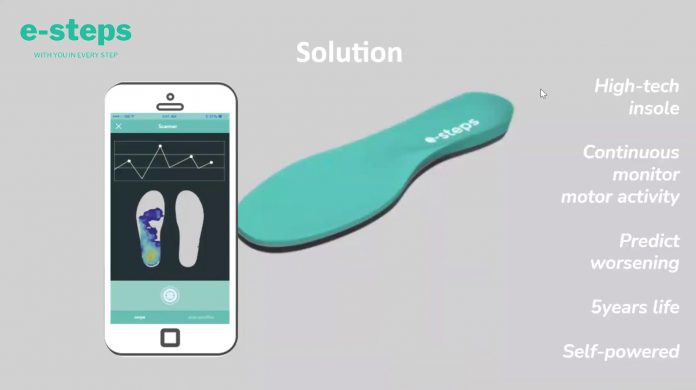The idea of the young Bologna-based team composed of Nidhal Louhichi, Marco Di Felice and Davide Giosuè Lippolis, ESTEPS aims to combat motor disability in the lower limbs of patients suffering from multiple sclerosis.
Milan, 18th March 2021 – The NEET tax, an acronym for “Not in Education, Employment or Training”, is considered the main measure of how much a community squanders the potential of the new generations and looks to the future with less productive and competitive capacity. The pandemic has further exacerbated a situation that was already dramatic in Italy in recent years, with around one in four young people neither studying nor working.
Offering young people who fall into this category an opportunity for personal and professional relaunch through entrepreneurial education: this is the aim of Junior Achievement Italia’s NEETs in Entrepreneurship: Match the Future initiative. The NEETs in Entrepreneurship three-year project that started in November 2018 and will continue until mid-2021, with an ambitious goal: to involve 400 young NEETs nationwide, creating 10 startups funded by Iceland, Liechtenstein and Norway through the EEA and Norway Grants Fund for Youth Employment.
Among the 10 winning ideas, each of which will receive funding of EUR 6,500 and will be supported in the start-up process, is ESTEPS from Bologna. The start-up aims to combat the increase in motor disability in the lower limbs by proposing customised, sustainable and high-tech solutions for patients suffering from multiple sclerosis thanks to biomechanics and tele-rehabilitation protocols.
People with severe multiple sclerosis (MS) can lose the ability to walk unaided. It is essential to provide continuous functional assessment to define an effective and personalised drug therapy and useful monitoring for timely intervention with targeted physiotherapy. This functional assessment is particularly important for the patient with an early stage of the disease to keep for as long as possible the personal and functional autonomy necessary to maintain a working and social role.
Created by Nidhal Louhichi, Marco Di Felice and Davide Giosuè Lippolis, ESTEPS has developed an artificial intelligence-based system to provide doctors with suggestions for possible personalised treatments and to assist them in assessing effectiveness remotely. The solution is based on a self-powered smart footbed connected to a patient’s mobile app. The patient uses an “invisible” device that allows him to perform balance tests and walk directly from home. His data is sent securely to a cloud and the doctor can view it remotely via his dashboard, and with predictive algorithms he is able to anticipate worsening of the disease, thus having time to change therapy and intervene well in advance on the patient’s health.
About the EEA and Norway Grant
The EEA and Norway Grants represent the contribution of Iceland, Liechtenstein and Norway towards a green, competitive and inclusive Europe.
There are two overall objectives: reduction of economic and social disparities in Europe, and strengthening of bilateral relations between the donor countries and 15 EU countries in Central and Southern Europe and the Baltics. The three donor countries cooperate closely with the EU through the Agreement on the European Economic Area (EEA). The donors have provided €3.3 billion through consecutive grant schemes between 1994 and 2014. A further €2.8 billion has been made available for the EEA and Norway Grants 2014-2021 funding period.
About JA Italia
Junior Achievement is the world’s largest non-profit organisation dedicated to business education in schools. In 122 countries, JA’s network brings together more than 465,000 business volunteers from all professional sectors and, with them, reaches more than 10 million students worldwide. As of 2019, Junior Achievement is listed by NGO Advisor as seventh in the Top500NGO world rankings. Since 2002, in Italy, it has built a network of business professionals, foundations and institutions, educators and teachers who, according to the logic of social responsibility and volunteerism, provide practical and concrete tools and teaching methods. Thanks to them, JA Italia has trained in y.s. 2019/2020 over 60 thousand young people aged 6 to 24, enhancing their aptitudes, teaching them how to recognise opportunities, so that the future becomes a promise of hope and today’s students are protagonists in tomorrow’s work. www.jaitalia.org


